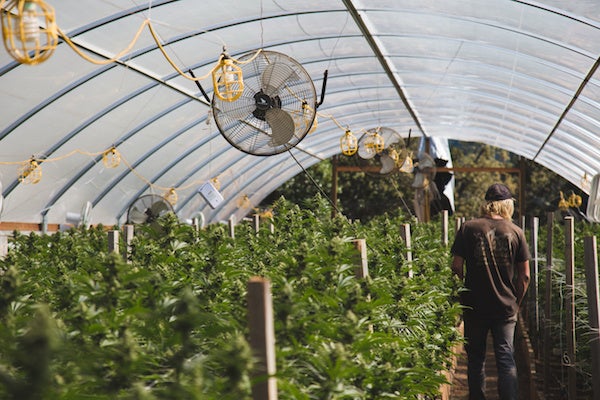Blog, Tips and Tricks
What tools are needed for commercial cannabis growing?
Cannabis cultivation has been booming since last October’s legalization, and those wanting to place their stake in the action have to start by applying for a cannabis license. That being said, while all Canadians of legal age can produce cannabis products for their personal use, if you want to become an industrial hemp grower there are a few rules and some responsibilities to consider before filling out the paperwork. However, once you hold a valid license, there are some innovative tools and must-have items that are worth the investment before beginning your commercial cannabis growing process.
A look at the growing equipment needed
Commercial cannabis businesses are rapidly expanding and with such accelerated growth opportunities it’s always a good time to evaluate your current equipment to ensure that you’re scaling up when you need to.
To help, we’ve put together a guide filled with tools and equipment must-haves:
Ventilation system: It’s important to choose an open system that uses carbon exhaust filters to control odors and ensure quality airflow throughout your growing operation.
pH and TDS measuring equipment: Getting your measurements quickly and frequently is the key when you’re in charge of plant development. If your equipment is cheap and inaccurate, the poor readings will slow down your operation.
Indoor plant lighting: This is a requirement for indoor cannabis growers only. The lights you choose for your setup are greatly dependent on your region’s electrical rates.
Trimming equipment: Depending on the size of the operation, hand-trimming may not be the most proficient way to harvest your crop. Consider investing in a machine that can help you to dry trim, tandem trim or batch-style trim.
Magnifying glass: This tool is useful for spotting contaminants such as mold, mildew, hair, and bugs.
Seed drill: This machine sows hemp seeds and is best used if you have many acres of the crop to plant.
Transplanter: If you aren’t starting your growing process from the seed stage, a transplanter is a great piece of equipment to use on early hemp plants, placing them considering spacing and position.
Combine: This farming tool is a great piece of equipment for cultivators to use if they’re collecting the plant for tinctures, oils or textile-based products.
A look at the safety equipment needed
UV light protection: Whether you have outdoor workers exposing themselves to the sun or indoor workers dealing with direct UV lighting, it’s important to invest in protection against the rays. Perhaps consider providing employees with hats, sunscreen, and sunglasses to help with long-term exposure.
Gloves: All who handle the product should be using gloves to protect their hands and the health of the plant.
Antibacterial: Another way to avoid skin irritations and enhance plant health is to set up wash stations that have antibacterial soap or gel readily available.
Eye protection: During the commercial cannabis growing process, if you’re working with any type of chemicals, it’s important to have eye protection to prevent damage or irritation.
Coveralls: While some growers go as far as to use shoe covers, beard covers, aprons, and hairnets, we believe that coveralls are the least you should wear if you’re working as a cannabis cultivator.
Respirators: Some growing operations have more air contaminants than others, depending on the stage of the crop’s growing cycle. So, if you’re a careful cultivator, perhaps consider wearing a respirator if you’re unaware of the facility.
Things to be mindful of
Temporary control: It’s extremely important to keep your plants sitting at the proper temperature, so we recommend HVAC equipment that allows you to control the climate.
Humidity control: Cannabis needs the right amount of humidity to reach their full potential, not to mention having the wrong environment can lead to the damaging growth of mold.
Pesticides: Since pests can be a major problem during the commercial cannabis growing process, it’s important to look up what Federal regulations there are for the use of pesticides on your crop.
Are there any other tools or processing pieces that could benefit a first-time industry operator? Drop a comment below to share your knowledge.


